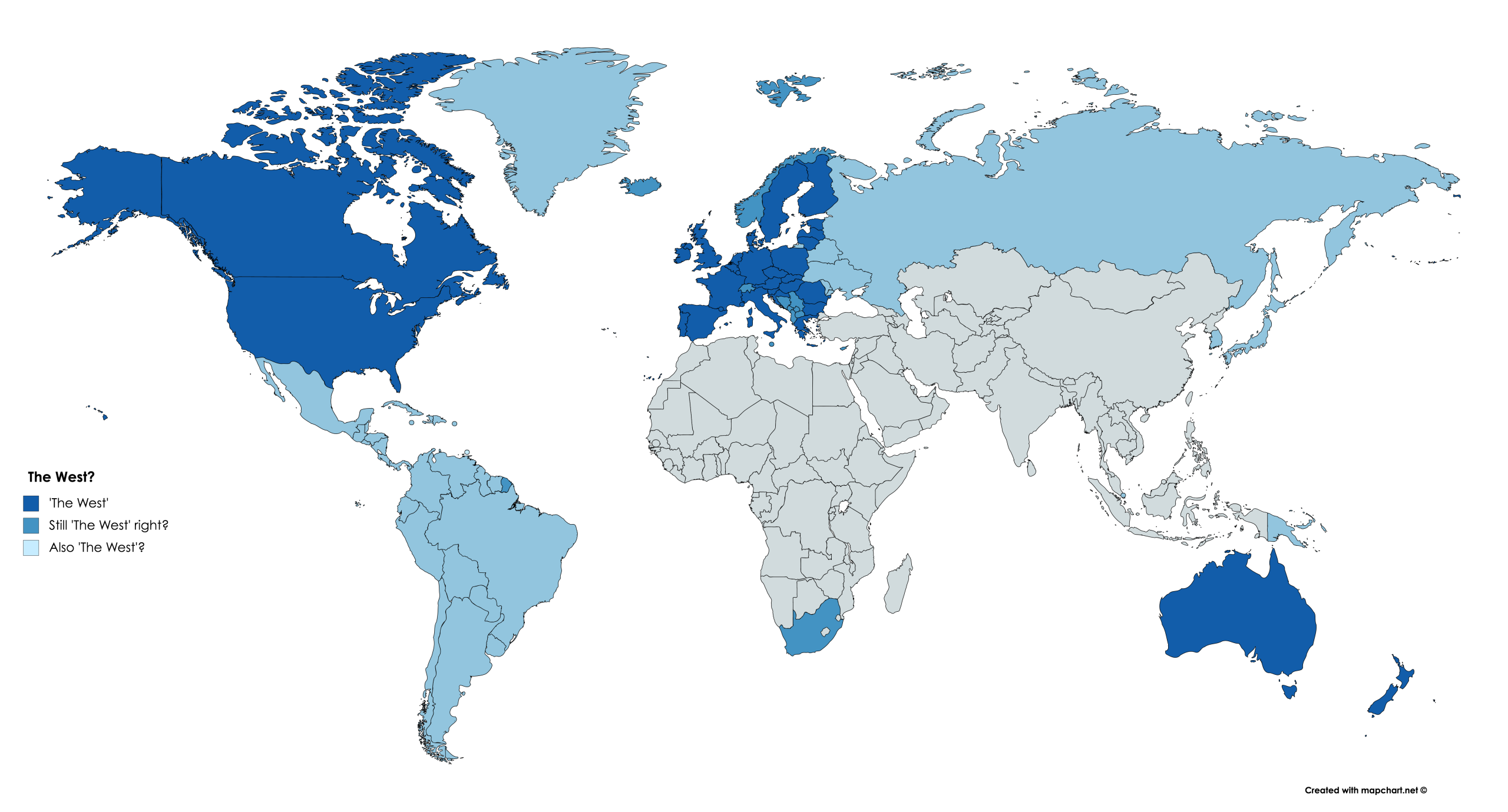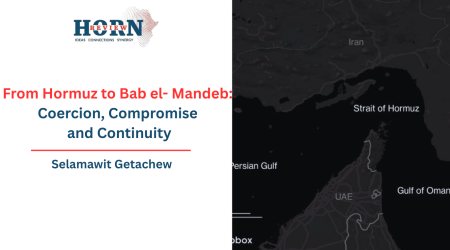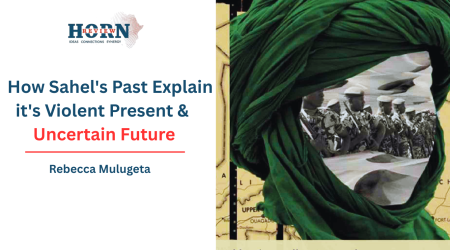
30
Jul
Assessing the Appeal: Strategic Syllogism Behind Calls for Western Intervention in Global Conflicts
Western intervention appeals are not new phenomena. It is a wide and old inclination in most conflict areas because warring parties have always had their eyes set on the center of the west. Rwanda and the Democratic Republic of Congo recently sat across from each other, but they were not sitting alone. The United Arab Emirates and the United States as mediators came as a reminder of a familiar international political stance where rivalling groups are looking to the West for settlement. What History revealed is that Anti-Bolshevik forces during the Russian Civil War fought not only, but actively looked up Western assistance. In the Libyan civil war, NATO intervention sounded the howls of the insurgents and turned the 2011 Libyan uprising into an international issue (Karin.W, 2024). In addition, the call has extended to the Syrian conflict-ridden uprisings where Ethiopia is also witnessing an influx of refugees coming, Meanwhile the opposing parties persistently seek Western powers for support, protection, or arms (Marc, 2016). We hear the same story again from internal forces who desire west intervention from East Europe to North Africa and the Horn of Africa.
In the context of Ethiopia’s decades of internal rivalries, insurgent movements are likely to go abroad and seek assistance from foreign nations and international institutions. It is more a process than a call for assistance since it conforms to a complex dynamics of world politics, military dynamics, and deep suspicion of local institutions. The realization of the source of such strategic attraction and its historical equivalents is central in the process of analyzing the dynamics of Ethiopia’s centuries-long instability, and to guide initiatives towards lasting peace in the region.
The previous week had been a dramatic convergence of two monumental events that is a paradigm shift in the U.S.-Africa relations from aid to trade (Monika, and Darlene Superville,2025). and the renewed interest by Ethiopian Prime Minister Abiy Ahmed in reconciling with the TPLF and continuing to pursue peace and state that ‘the false hope of foreign support has led to renewed conflict’ call to pursue peace in the absence of international interventions (Office of the Prime Minister, 2025). Meanwhile, media channels with a Tigray perspective spread calls for U.S. foreign policy to speak on behalf of the people of Tigray (Tigray Media House, 2025).
Epidemic to this shift was the U.S.-Africa Business Summit, where Senior Bureau Official for African Affairs Troy Fitrell had a notable statement that America now does not see Africa as a handout continent, but as an investment-worthy and tradable partner. This direction shift, however, worried Tigray-aligned media outlets, who criticized the shift for potentially forgetting the widespread human rights abuses allegedly made by the Ethiopian government. They called for the West to put the Tigrayan people at its center in its alignment, another clear sign that players like the TPLF still perceive Western intervention as a vital support in their initiative. It then raises a bold question, Why do fighters consistently appeal for Western intervention instead of attempting to resolve matters locally?
Behind all of this, there lies the pursuit of worldwide legitimacy and strategic influence. In Ethiopia, as in other conflict areas, suspected “insurgents” too frequently remain a global non-entity until provided with legitimacy by outsiders. With the aid of Western intervention and patronage, it transforms them from being regional rebels into being legitimate political forces who must be given a seat at the negotiating table (A. Skoll, 2024). It offers access to diplomatic access, humanitarian aid, and economic resources that are essential to being able to maintain influence and remain alive. Discrepancy of forces within the armed forces is the second key consideration. Most of the armed groups are outnumbered by the national army. They lack the military material and manpower relative to the national army. In such a scenario, turning to the West is a logical step in order to shift the balance.
History shows that foreign sanctions, diplomatic isolation, and foreign military support can drastically change domestic power balances. To movements for regime replacement or serious political change, foreign aid is seen as an effective stimulus. Globally, alignment with the West is seen in an attempt to play a psychological and strategic role. It sends an unmistakable “message of confidence and foreign support” to players, potential recruits, and adversaries. This image of foreign support helps to maintain morale, solidarity, and the belief that “victory” or at least “preferred political objectives” is still within reach. But underlying all of this is west intervention in Africa is also because there is a deep suspicion of regional organizations like the African Union (AU) and the Intergovernmental Authority on Development (IGAD). Rather than being negotiated by the AU-facilitated or IGAD, most groups continue to query regional peace mediation processes on grounds of discrimination, political interference, and absence of operational channels of enforcement. Conversely, some states find Western powers more decisive and neutral in enforcing peace agreements and thus more acceptable to those yearning for a fair end.
With the age of technology, war shifted from fields to technology warfare . Visibility in the media is as crucial as domination of territory. Western intervention provides more openness for international media organizations to access a side so they can set the agenda, place alleged abuses front and center, and mobilize international sympathy. The TPLF war-time coverage by the media in the war in Tigray demonstrated the strategy to perfection (VOA, 2021). Global outrage can elicit responses of humanitarianism, policy change, and in a few cases, armed intervention.
Western intervention will end war, save lives, and give justice, in the meantime western intervention in Syria and Libya has created ongoing instability, power vacuum, and unintended consequences. These are a clear reminder that no great power ever acts out of selflessness. States do not invest with the hope of not receiving strategic dividends. Depending upon external powers gets nations addicted and patterns of conflict even more complex. While western intervention often provides immediate relief to suffering countries, it fails to address the root causes of their crises.
Longer than extraneous intervention, peace requires inside accountability, open negotiation, and sincere political will from within. As a direction to policy and practice it should set well structured and inclusive National Dialogue forums, yes there is a National Dialogue Commission but the commission must be inclusive of the internet and warring parties’ needs and not state party controlled it should be inclusive that is able to bring on board regional players and political parties.
As Africans we must regain confidence that we have in regional institutions here too. Yes they are weak and biased at times but strengthening this institution first involves bridging and nurturing rust on them. As it is a state formed by over 80 nations and nationalities we should reduce structural grievances that can cause future insurgencies and legitimize the constitution that can accommodate the areas separating them, and we should establish independent conflict prevention mechanisms and institutions that can manage early warning system, that can be able to talk to the political parties and factions beforehand not in war of later. And lastly we should establish a bill that will be robust enough to deter the lobby of foreign powers rather than use our national media power in our favor instead of losing war during the time of digital age.
By Rebecca Mulugeta,Researcher,Horn Review
References
- Lynch, M. (2016). The new Arab wars: Uprisings and anarchy in the Middle East. PublicAffairs
- Pronczuk, M., & Superville, D. (July 9, 2025). Trump promises West African leaders a trade shift as the region reeled from across-the-board aid cuts. Associated Press.
- Skoll, A. (2024). Rebel group branding and external intervention. Small Wars & Insurgencies.
- Voice of America. (October 17, 2021). How social media became a battleground in the Tigray war.
- Wester, K. (2024). Intervention in Libya. Cambridge University Press.










